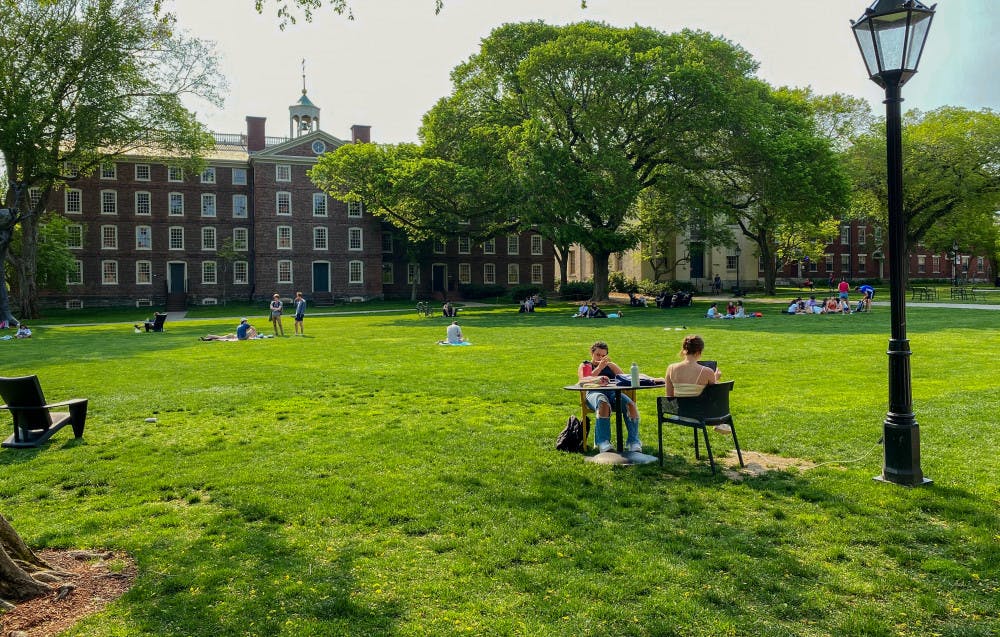The University will begin returning to pre-pandemic campus life after on-campus students and faculty exceeded 90 percent vaccination levels, resuming in-person dining at the Sharpe Refectory and closing access to COVID-19 testing sites for vaccinated individuals this week.
As of July 7, 95.9 percent of students and 93 percent of faculty on campus were fully vaccinated. 77.8 percent and 88.7 percent of total students and faculty, respectively, have documented proof of vaccination with the University.
Executive Vice President for Planning and Policy Russell Carey ’91 MA’06 called this “timely” compliance with vaccination requirements a “real milestone and testament to the community.”
“This really enables us to be on a path to continuing to get back to more normal operations,” Carey said.
Fully vaccinated individuals are no longer required to wear masks indoors in most public spaces, including in-person classes, libraries, labs, athletic centers and dining halls. Masks must still be worn in campus shuttles, University Health Services and COVID-19 testing locations.
Students are still required to make reservations before using the Nelson Athletic Center and the libraries. The reservation process remains in place to “maintain some level of reduced density, and, while we are at a very high level of vaccination, it's not 100 percent,” Carey said.
“At some point (reservations) will change, certainly by the fall,” he added. “This is a gradual transition process, and it's not necessarily flipping a switch and automatically going back to complete normalcy.”
Immediate changes include the end of routine COVID-19 asymptomatic testing for vaccinated individuals. Beginning Tuesday, fully vaccinated students and faculty will no longer have access to testing sites, according to an email sent to on-campus students by the Brown COVID-19 Support Team. Only symptomatic testing will be provided through Health Services when requested.
In-person dining begins Monday at the Sharpe Refectory Dining Hall.
“Dining is the biggest (change this summer) in terms of having the most immediate impact on student experience,” Carey said.
Despite the global prevalence of the Delta variant, the University “still feels comfortable making the changes that we're making” given the low levels of COVID-19 on campus, in the state and in the broader Northeast area, Carey said.
From June 20 to July 4, four undergraduate students tested positive for COVID-19, and so far during the week of July 4, one faculty member has tested positive for COVID-19, according to the Healthy Brown COVID-19 Dashboard. Due to privacy surrounding patient health information, the University could not disclose the vaccination status of those who tested positive.
Zero students in the Pre-College Programs tested positive for COVID-19 from June 20 to July 4, according to Carey.
High school students will continue to be tested upon arrival and twice a week thereafter, and they are required to wear masks and practice social distancing despite loosened restrictions for vaccinated University students and faculty. The first session of the Pre-College Programs finished the weekend of July 3, and the next cohort of students will move in by Monday.
“We had no issues or concerns with (the first round of Pre-College) program at all,” Carey said. “Although they weren't required to, the vaccination levels were very high — 70 percent and above.”
“The vaccine is extremely effective,” he said. “We continue to see very low positivity on campus, and we can almost completely attribute that to vaccination levels — so I think the importance of getting vaccinated is critical.”
Gabriella was a Science & Research editor at The Herald.





